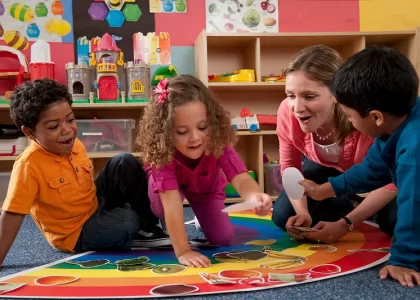Gardening is more than just a pastime; it is a profound activity that can have significant impacts on children’s development. As children dig their hands into the soil, plant seeds, and nurture growing plants, they engage in a range of experiences that contribute to their physical, emotional, and cognitive growth. This article explores the numerous benefits of gardening for children and why it should be encouraged as part of their upbringing.
1. Fostering a Connection with Nature
- Understanding Ecosystems: Gardening provides children with firsthand knowledge of ecosystems and the environment. They learn about plant biology, the importance of pollinators, and the role of soil health.
- Appreciating Biodiversity: Through gardening, children encounter a variety of plants, insects, and wildlife, fostering a sense of wonder and appreciation for nature’s complexity.
2. Promoting Physical Activity
- Hands-On Movement: Gardening involves physical tasks like digging, planting, weeding, and watering. These activities promote physical fitness and help develop motor skills and coordination.
- Encouraging Outdoor Play: Gardening encourages children to spend time outdoors, away from screens, which is essential for their overall health and well-being.
3. Enhancing Cognitive Skills
- Problem-Solving: Gardening presents challenges, such as dealing with pests or choosing the right plants for the season. Children learn to think critically and devise solutions.
- Scientific Exploration: Gardening encourages inquiry and experimentation. Children observe the effects of sunlight, water, and nutrients on plant growth, fostering an interest in science and the natural world.
4. Teaching Responsibility and Patience
- Care and Commitment: Taking care of plants requires consistent effort. Children learn the importance of nurturing and responsibility as they tend to their garden.
- Patience and Delayed Gratification: Gardening teaches children that good things take time. They learn to wait for seeds to sprout and plants to mature, instilling patience and an understanding of growth cycles.
5. Boosting Emotional Well-Being
- Stress Relief: Gardening can be a therapeutic activity. The act of tending to plants has been shown to reduce stress and anxiety, promoting emotional health.
- Sense of Accomplishment: Watching their efforts yield results boosts children’s self-esteem. Successfully growing plants can instill a sense of achievement and pride.
6. Encouraging Healthy Eating Habits
- Growing Food: When children grow their own fruits and vegetables, they become more inclined to eat them. This hands-on experience can cultivate a lifelong appreciation for healthy, fresh food.
- Understanding Nutrition: Gardening provides an opportunity to teach children about nutrition and where their food comes from, fostering informed eating habits.
7. Building Social Skills
- Collaborative Learning: Gardening can be a communal activity. Whether in a school garden or a neighborhood project, children learn to work together, share responsibilities, and communicate effectively.
- Cultural Exchange: Gardening can also introduce children to different cultural practices related to food and gardening, promoting inclusivity and understanding.
8. Environmental Stewardship
- Sustainability Awareness: Gardening teaches children about sustainable practices, such as composting and water conservation. They learn the importance of taking care of the earth and its resources.
- Connection to Global Issues: Through gardening, children can understand broader environmental issues, such as climate change and biodiversity loss, fostering a sense of responsibility toward the planet.
9. Creativity and Self-Expression
- Design and Aesthetics: Gardening allows children to express their creativity in designing their gardens, choosing colors, and arranging plants. This creative outlet can be both fulfilling and fun.
- Artistic Opportunities: Children can engage in various artistic projects related to gardening, from painting plant markers to creating garden-themed crafts.



